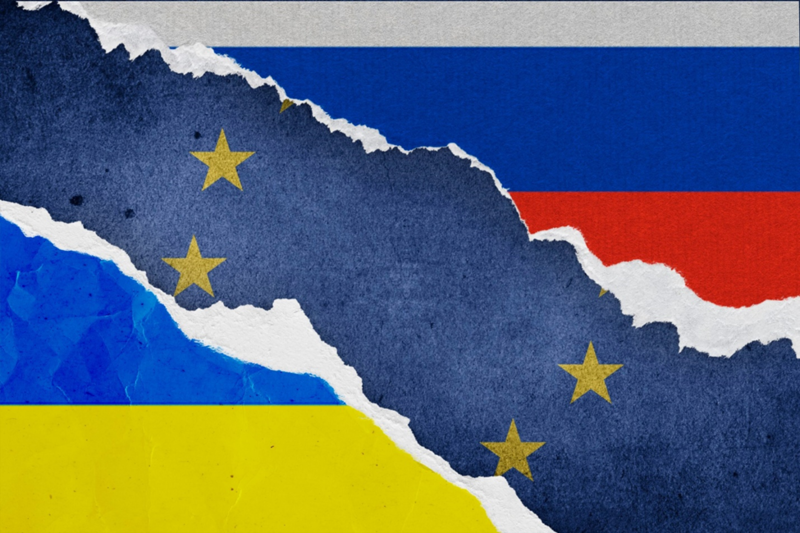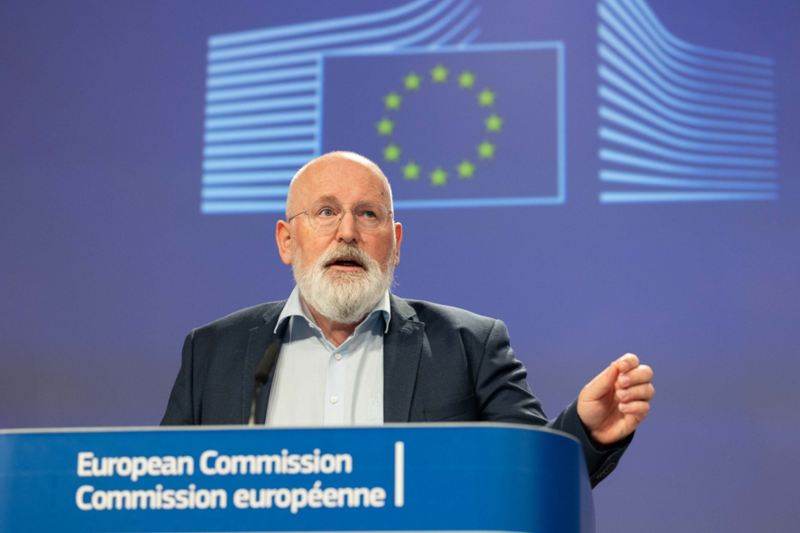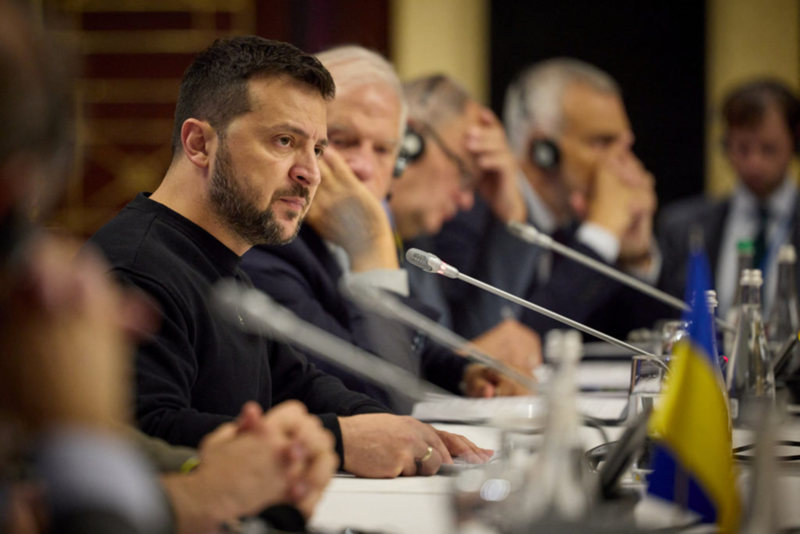Europe at a Crossroads: Balancing Energy Independence, Military Strength, and Ukraine’s Future
Input
Modified
The Energy Dilemma: Breaking Free from Russian Fossil Fuels Europe's Defense Awakening: Enhancing Military Autonomy Ukraine's Uncertain Future and Europe's Trajectory

The Energy Dilemma: Breaking Free from Russian Fossil Fuels
Europe is at a crossroads, struggling to reduce reliance on Russian energy, strengthen its military independence, and sustain support for Ukraine amid shifting global alliances. As geopolitical tensions rise, the EU must balance energy security, defense preparedness, and diplomatic strategy to secure its future.
The geopolitical landscape of Europe is currently undergoing seismic shifts as the continent contends with three interconnected crises: escalating defense requirements, energy dependence on Russia, and sustained support for Ukraine. In an evolving world order, the European Union (EU) is under increasing pressure to reevaluate its policies, as economic resilience, military preparedness, and diplomatic coherence are essential for the preservation of stability.
Russian energy imports have been inextricably linked to the economic prosperity of Europe for decades. A reliable yet politically fraught energy source, Russia supplied nearly 45% of the EU's natural gas imports prior to the Ukraine conflict. Nevertheless, the inherent risks of this dependence were exposed by Russia's invasion of Ukraine in 2022, prompting European leaders to pursue alternative solutions.
The EU responded by implementing REPowerEU, a daring initiative that aims to eliminate dependence on Russian fossil fuels by 2027. The strategy emphasizes the rapid transition to renewable energy sources, diversified supply chains, and energy efficiency. Nevertheless, the European Commission's consistent failure to propose concrete measures underscores the substantial economic and logistical obstacles that must be surmounted in order to accomplish these objectives.
A significant disruption occurred on January 1, 2025, when Ukraine suspended the transit of Russian gas to Europe as a result of the expiration of a long-standing agreement. Energy security concerns were exacerbated by the abrupt move, which caused nations such as Austria, Slovakia, and Moldova to scramble for alternative supplies. Data suggests that Europe spent €21.9 billion on Russian fossil fuels last year, despite efforts to mitigate the repercussions. This is in contrast to €18.7 billion in aid to Ukraine.
The EU has been the scene of intense debates as a result of this financial paradox. Critics contend that the bloc's position against Russian aggression is in conflict with its policy of funding Ukraine's defense while continuing to pay Russia for energy. The challenge for European leaders is to maintain credibility on the international stage while striking a balance between energy security and economic independence.

Europe's Defense Awakening: Enhancing Military Autonomy
The conflict in Ukraine has served as a wake-up call for European defense policies. The EU, which has historically depended on the U.S.-led NATO alliance, is now confronted with the urgent reality that Washington's guarantee of European security is no longer secure. The "America First" posture of the Trump administration has significantly altered transatlantic relations, prompting concerns that Europe must enhance its own military capabilities to defend against future threats.
During an emergency summit in Brussels, EU leaders reached a consensus on an unprecedented increase in defense expenditure, thereby indicating a new era of military independence. Ursula von der Leyen, the President of the European Commission, proposed a comprehensive defense package that could mobilize up to €800 billion. This package would include €150 billion in financing for the joint procurement of European defense equipment.
French President Emmanuel Macron, who is a fervent proponent of European military sovereignty, took a step further by expanding France's nuclear deterrent to encompass the entire continent. Although internal disagreements persist, his vision for a unified European defense strategy has garnered momentum. Germany and other Western nations are hesitant to escalate tensions, while Eastern European nations, particularly Poland and the Baltic states, advocate for a more aggressive military expansion.
The EU's transition to military self-reliance is not solely motivated by the desire to oppose Russian aggression; it is also a response to the evolving role of the United States in global geopolitics. Europe is now obligated to assume full responsibility for its own security, as the United States has substantially reduced military aid and intelligence-sharing with Ukraine. The ability of EU leaders to convert ambitious defense commitments into tangible military strength will be put to the test in the upcoming months.

Ukraine's Uncertain Future and Europe's Trajectory
The EU's relationship with Ukraine is at a juncture, in addition to energy and defense. European leaders have expressed their unwavering support for Kyiv; however, diplomatic tensions and financial constraints pose a threat to the sustainability of long-term assistance.
There was a particularly tense moment when Donald Trump and Ukrainian President Volodymyr Zelensky disagreed on a proposed rare earth mineral transaction and security guarantees. Zelensky's tenure "might be short-lived" if he fails to negotiate a ceasefire with Russia, as Trump's enigmatic suggestion suggested, sent shockwaves through diplomatic circles. The exchange underscored the precarious state of U.S.-Ukraine relations and further complicated European endeavors to facilitate peace negotiations.
In the interim, European nations have initiated the exploration of alternative strategies to stabilize Ukraine. France has advocated for a temporary partial armistice, while UK Prime Minister Keir Starmer proposed a "coalition of the willing" that would involve direct European military assistance. Nevertheless, both proposals encounter substantial obstacles, such as the ongoing uncertainty of U.S. military support and the absence of consensus among EU nations.
Ukraine's economic recovery cost, which is estimated to be $524 billion over the next decade, further complicates the situation. It will be a monumental endeavor to secure long-term financial commitments from European nations, many of which are already struggling with domestic economic challenges. In order to mitigate the economic consequences of geopolitical instability, the European Central Bank (ECB) has implemented modifications to its monetary policies, such as decreasing interest rates.
Europe's geopolitical trajectory for the next several decades is being influenced by its balancing act between reducing its dependence on Russian energy, strengthening military capabilities, and maintaining aid to Ukraine. If the EU is able to successfully transition to a diplomatically unified, militarily self-sufficient, and energy-independent entity in the future years, will be determined.
The energy transition continues to be a challenging but essential objective. Although Europe has made progress in reducing its reliance on Russian gas imports, the residual dependencies raise concerns about the long-term economic sustainability. In the interim, the European Union's renewed dedication to defense expenditure represents a critical juncture in its history; however, there are still uncertainties regarding the efficacy of European nations' military strategies in aligning.
Lastly, the destiny of Ukraine remains uncertain. European leaders must navigate intricate diplomatic waters to guarantee ongoing support in the face of increasing reconstruction costs and evolving global alliances. With the ongoing evolution of geopolitical tensions, it is evident that Europe is at a critical juncture in its history, where the security and prosperity of future generations will be influenced by its today's actions.





















